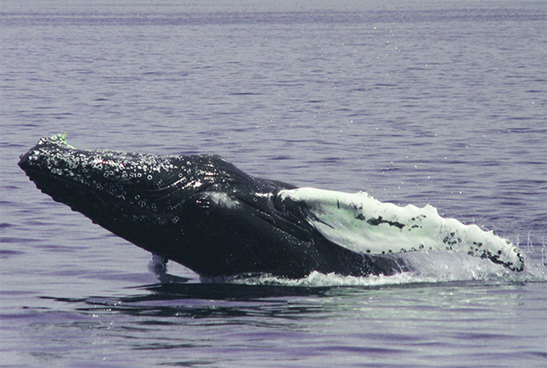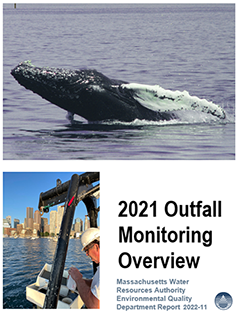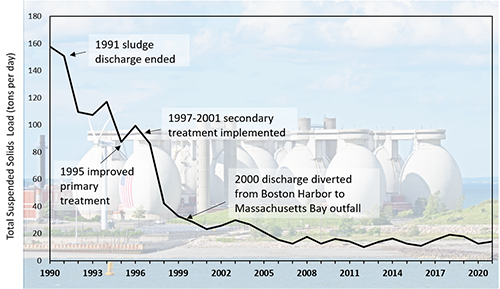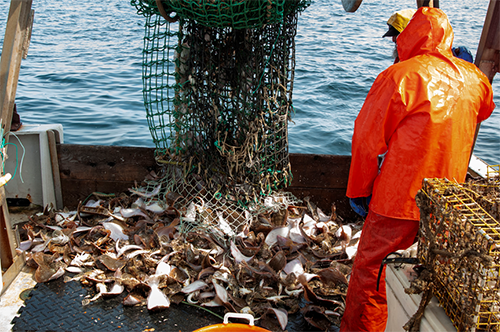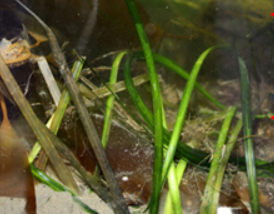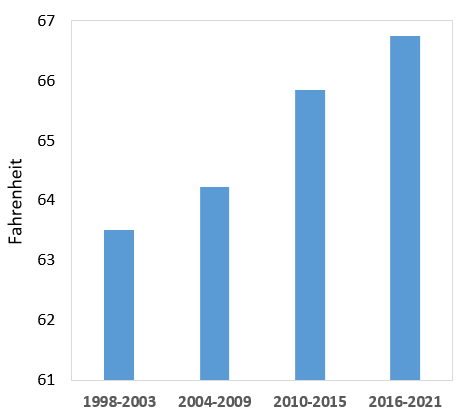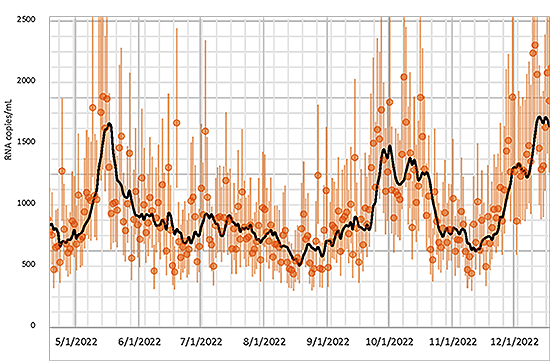Humpback whale in Massachusetts Bay (Photo: David Silvia)
Massachusetts Water Resources Authority
PRESS RELEASE
Posted:
January 10, 2023
Contact:
Ria Convery
(617) 788-1105, Ria.Convery@mwra.com
MWRA Releases Annual Deer Island Outfall Monitoring Report
|
MWRA's Outfall Monitoring Overview summarizes the annual results of MWRA's monitoring of the environmental effects of the Deer Island Treatment Plant effluent discharges. MWRA monitors the effluent, as well as the water, sediment and the health of fish and shellfish in Massachusetts and Cape Cod Bays. 2021 marked the 30th consecutive year of monitoring and 21 years since the effluent discharge moved to Massachusetts Bay from Boston Harbor. The Boston Harbor Project began in 1985, with the goal to clean up the polluted harbor and improve sewage treatment. MWRA upgraded facilities, and built a new treatment plant. Today, wastewater from more than 40 communities receives secondary treatment at Deer Island Treatment Plant. MWRA is pleased to report that test results for 2021 show that the Deer Island Treatment Plant continues to operate as designed, and that discharges through the MWRA Outfall are having no unexpected effects on the Massachusetts Bay ecosystem, including Boston Harbor and Cape Cod Bay. Water quality remains good and the ocean communities remain healthy and diverse. Summary of Effluent Quality Monitoring
One of the most important measures of effluent quality is the amount or "load" of suspended solids discharged over a year. Excess solids could make the receiving water cloudy and contribute to reduced dissolved oxygen in the water and bottom sediments. Also, removing solids also removes attached metals and other contaminants from the effluent before discharge into Massachusetts Bay. Ocean fish and shellfish are healthy Contaminants in flounder, lobster, and mussels have not increased since the Massachusetts Bay discharge began in 2000. These animals have potential exposure to contamination in the water or on the sea floor. Flounder health has improved near the Massachusetts Bay outfall and the former outfall in Boston Harbor, corresponding with the declines in total solids and organic material discharged. Levels of many contaminants have declined, particularly near the former Deer Island outfall in Boston Harbor. Abundant flounder catch near the Massachusetts Bay outfall site in 2021. Contaminants in flounder, lobster, and mussels have not increased since the Massachusetts Bay discharge began in 2000. Flounder health has improved near the bay outfall and at the former outfall in Boston Harbor, corresponding with the declines in discharged solids and organic material. An abundance of flounder were captured near the outfall site in 2021 (Photo: Michael Moore, Woods Hole Oceanographic Institution). Boston Harbor is cleaner and still improving Boston Harbor has been improving over the decades since the effluent discharge from Deer Island was moved to Mass. Bay. Contaminant levels have declined in the harbor and flounder health has improved. Monitoring shows healthy habitats including thriving eelgrass, a sign of good seafloor conditions, at a site off Deer Island where effluent was once discharged. Special Studies: MWRA tracks temperature and other changes in Massachusetts Bay MWRA has documented increasing summer surface-water temperatures in Massachusetts Bay, which can contribute to lower levels of dissolved oxygen. Average summer surface-water temperatures in Massachusetts Bay are increasing. Shown: four six-year periods, 1998–2021. Changing wind patterns can also affect temperature. for more information, see the latest Outfall Monitoring Overview.
MWRA was one of the first wastewater agencies to monitor for signals of COVID-19 There have been no known cases of a person contracting COVID-19 from untreated or treated wastewater. Since 2020, MWRA has partnered with Biobot Analytics, a wastewater epidemiology company, to monitor the viral RNA in SARS-CoV-2 in the incoming wastewater before treatment. This information provides authorities and the public with information on the spread of COVID-19.
More Information For more information about water quality in Boston Harbor, its tributary rivers and Massachusetts Bay, visit our Harbor and Bay Water Quality Report page.
|
||||||||
### |
Follow us |
